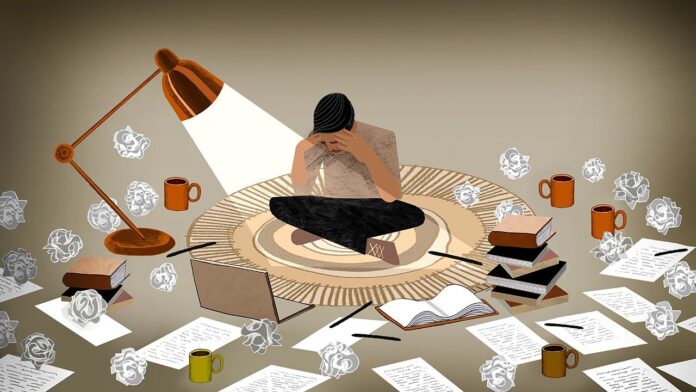When you’re seeking to better your overall health, it’s essential to consider your mental wellbeing. One of the things that can hold your mental health back is when you feel perpetually guilty. Guilt is when you feel responsible for something, and you can’t seem to shake the fact that you did something wrong. when you feel guilty, you can’t move on from perceived wrongdoing. You’re convinced that you could have said or done something differently. You may replay the incident over and over in your head. Guilt can torture people for years. That’s why it’s crucial to address the guilty feelings so that you can process them and move forward. If you’re curious about guilt, you can learn more about the emotion at BetterHelp. It helps to understand how other people experience guilt and find tools to combat it. You don’t have to get stuck in a guilt and shame cycle. There are actions you can take to help yourself feel better. Here’s how you can overcome guilt and shame.
Determine why you feel guilty

One of the tricky aspects of guilt is that you may not know why you’re feeling guilty. You have this abstract bad feeling but can’t identify where it comes from, which can be frustrating. You want to feel better, but you may not understand why you’re feeling bad. That places you in an emotional limbo, and you need to get out of that space to feel better. It’s time to identify what is making you feel guilty. Ask yourself what the source of your guilt is and if it helps, write it down. When you see it on paper, you can address why you’re feeling guilty and see if there’s anything you can do about it.
What action can you take?
Often when people feel guilty, it’s because they regret how they handled the situation. You can’t go back in time and change the past, but you can take action to rectify what happened. Ask yourself: is there any action you can take right now to fix the situation? You can’t erase what happened, but you can try to make amends if there’s somebody you hurt.
Guilt wants to stagnate you, but you don’t have to let it. When you take action, you are combat and guilty feelings. It never hurts to apologize if you feel that you’ve done something wrong. The worst thing that can happen is the person doesn’t want to make amends. But, at least you made an effort. You can take a step forward rather than ruminate on what happened in the past.
Healthy versus unhealthy guilt

Not all guilt is bad. There’s a difference between healthy and unhealthy guilt. Healthy guilt can serve as a learning opportunity. Perhaps you took an action that went against your morals and values, and you want to change the way you behave in the future. Use this guilty feeling as a productive way to modify your behavior for future experiences. Ask yourself: what can I learn from this scenario? Healthy guilt can be a great way to better yourself. Unhealthy guilt is not a productive emotion. When you’re feeling needlessly guilty, it means that there’s nothing you can do to fix the situation at hand. You’re ruminating on a problem that has no solution. When you’re experiencing unhealthy guilt, it can take a toll on your self-esteem or self-worth. You’re probably beating yourself up for no good reason. That’s when it’s time to examine why you’re feeling guilty and discuss these issues with a trusted friend or family member. You could also benefit from talking about them in therapy. It’s crucial to tackle unhealthy guilt; otherwise, it could lead to depression or take a toll on your interpersonal relationships, and you don’t want either of those things.
Self-compassion

Self-compassion is a crucial part of overcoming guilt and shame. Everyone makes mistakes, and that includes you. If you didn’t err, you would be a robot rather than a human being. It’s okay to make a mistake, and it’s an opportunity to learn. You don’t have to punish yourself because you made an error. It’s important to look at the action you feel guilty about and practice self-compassion. Talk to yourself as if you’re speaking to a close friend. You can say things like: “It must be painful to feel guilty. I’m sorry you’re feeling that way.” When you practice self-compassion, it can relieve some of those guilty and shameful emotions that come up.
Abandon perfectionism

Perfectionism is a barrier that many people struggle with, and it’s connected to guilt. Remember, there’s no such thing as “perfect.” We’re all doing the best that we can. When you hurt someone or make them angry, it’s a part of life. If you live each day trying to be perfect, you’re going to let yourself down and feel bad. One way to manage guilt is to let go of this concept of perfectionism and allow yourself to be human. Human beings hurt the ones they love, as much as they try not to, it happens. It’s okay not to be perfect!
Acceptance
Once you’ve done everything you can do to fix a situation, you need to accept the outcome. You can’t control what another person is going to do or how they’re going to respond to your actions. It can help to do a “guilt checklist.” Write down the following questions:
- Did I take action to fix the situation?
- Is there anything else I can do to make amends?
- Do I feel good about the actions I took to make things better?
If one or more of the answers to these questions is “no,” then there may be another action you can take to fix the situation that’s making you feel guilty. Then you can reassess what action you feel you need to take next. If the answers to all these questions are “yes,” then it’s time to accept the situation and move forward.
Talk about guilt in therapy

If you’re having persistent feelings of guilt, it’s crucial to discuss them in therapy. You don’t have to suffer needlessly when there’s a mental health professional who can help you process guilt and shame. Whether you work with a counselor online or in your local area, it’s crucial to get support. You can start feeling better once you tackle the reasons you’re feeling guilty.









